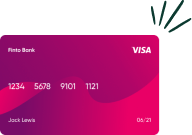- Home
- About Us
- Topics
-
Sections
- Financial Planning
- Banking Fundamentals
- Credit and Debt Management
- Loans and Debts
- Saving and Protecting Assets
- Insurance
- Risk Management
- Investing and Building Wealth
- Modern Investing
- Investment Principles
- Retirement Planning
- Home Ownership
- Education Funding
- Automotive Finance
- Tax and Estate Planning
- Behavioral Finance
- Articles
- Contact










